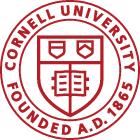The Smith School's Ph.D. in chemical engineering will prepare you for careers in academia and research. The program is completed in four to five years, and students typically receive full funding. As your pursue your Ph.D., youll be prepared to make significant contributions to the fieldand youll be in good company.
Not only are our chemical engineering faculty leading researchers and facilities continually improving with state-of-the-art upgrades and equipment, the culture of collegiality at the Smith School is unmatched. While youre progressing toward your thesis and diploma, youll be surrounded by a community of scholars that is contributing to something greater and embracing the founding principles of Cornell University. Degree candidates are expected to pursue study and research that will give them a deeper comprehension of the basic and applied sciences and will develop initiative, originality, and creative ability. The thesis or dissertation may involve either research or special projects in such subjects as design, economics, or mathematical analysis. There is no language requirement for students majoring in chemical engineering.
The advent of molecular biology, genomics, proteomics, and related technology has spawned a revolution in biology and offers numerous opportunities for new commercial developments. Many research groups within CBE are pioneering research in areas such as synthetic biology, systems biology, biomedical research and biotechnology, and biochemistry and biophysics of biological systems. Much of the research conducted in these areas has direct applications in: Human disease: design and engineering of therapeutic antibodies and proteins, cell and tissue engineering, delivery of vaccines and therapeutics, discovery of cancer targets, treatment of brain tumors. Fundamental processes of living systems: artificial trees, bioseparations, host pathogen interactions, cellular and subcellular organization, protein biogenesis, regulation and control of biological networks. Biotechnology: Biosensing and bioanalytical devices, protein engineering and cellular factories, body-on-a-chip.






